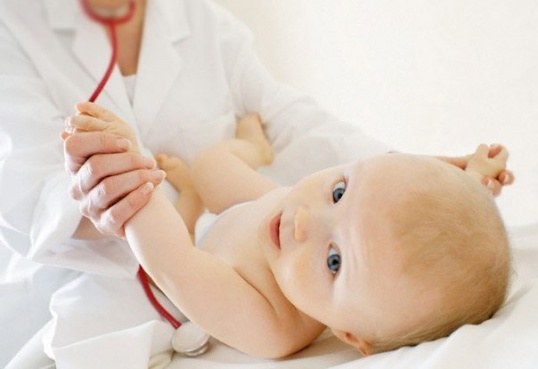Instruction
1
Rickets is a fairly common disease, according to statistics, in Russia suffer up to 20% of children. The disease occurs more frequently in children living in the Northern regions and major cities. Vitamin D is necessary for the human body, especially growing, as it participates in the metabolism of calcium and phosphorus, promotes better calcium absorption, its deposition in bones and is essential for the normal formation of bone tissue.
2
There are two causes of rickets - insufficient intake of vitamin D in the diet and lack of UV rays (under their influence the formation of vitamin D in the skin). Therefore, often suffer from rickets children born in autumn and winter. Also, rickets may occur in certain diseases of the bowel (when there is malabsorption of vitamin D) and treatment with anticonvulsants.
3
The first signs of rickets is a sleep disorders (sleep becomes shallow with frequent awakenings), sweating and baldness of head. Sweating can be so strong that the pillow becomes wet. Sticky sweat irritates the scalp, the child becomes restless, constantly turns his head, and so is wiping the hair on his head. Older children become whiny and irritable, decreased appetite.
4
Almost all children there is a decrease in muscle tone, parents notice that the stomach of child becomes wide and flattened ("frog" belly). For these children is characterized by late closure of the fontanel and the later eruption of primary teeth, they erupt in the wrong order, and further affected by caries.
5
If rickets is not to be treated in time, affects the bone tissue changes the bones of the skull, chest and extremities. The feet of these children take X-shaped or O-shaped and are often deformed pelvis - later it may become an obstacle for a normal delivery. On the lower part of the sternum appears impression, and in severe cases protrusion of the sternum (chicken breast).
6
On the edges where they connect to the sternum appear thickenings (beads), skull these children become disproportionately large, grow frontal and parietal tuber, the head takes the form of a cube. In severe cases, affects the liver and spleen. You can see that abdominal pain, frequent regurgitation, in older children - vomiting, diarrhea or constipation, often develop anemia.
7
Rickets often results in a delay of physical development - children begin to crawl, walk much later than their healthy peers. If the disease is not treated, it leads to irreversible consequences - scoliosis, flat feet, foot deformities and the formation of myopia at school age.

